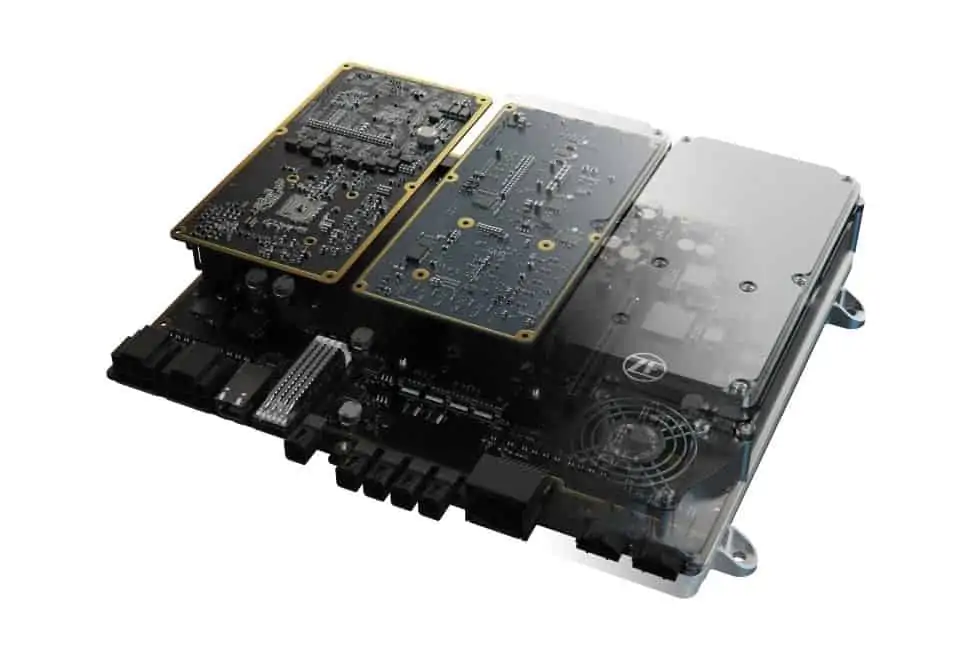Xilinx and automotive technology developer ZF Friedrichshafen AG (ZF) have announced a new strategic collaboration in which Xilinx technology will power ZF’s highly-advanced artificial intelligence (AI)-based automotive control unit, called the ZF ProAI, to enable automated driving applications.
ZF is using the Xilinx Zynq UltraScale+ MPSoC platform to handle real-time data aggregation, pre-processing, and distribution, as well as to provide compute acceleration for the AI processing in ZF’s new AI-based electronic control unit. ZF selected this adaptable, intelligent platform because it provides the processing power, scalability and flexibility essential for the ZF ProAI platform to be customized for each of its customers’ unique requirements.
“The unique selling proposition of the ZF ProAI is its modular hardware concept and open software architecture. Our aim is to provide the widest possible range of functions in the field of autonomous driving,” explained Torsten Gollewski, head of ZF Advanced Engineering and general manager of Zukunft Ventures GmbH. This approach is unique compared to other systems on the market, which use a fixed combination of hardware and software architecture – a solution that can potentially limit functionality and add more cost.
“We are proud to partner with ZF on its ProAI platform and help solve the challenges associated with autonomous vehicle development,” said Yousef Khalilollahi, vice president, core vertical markets, Xilinx. “By providing an adaptable hardware platform, ZF can design flexible and scalable systems that seamlessly incorporate AI compute acceleration and functional safety (FuSa) through diversity in processing engines. We look forward to expanding our collaboration with ZF to take autonomous and AI innovation to the next level.”
Xilinx has been selling chips to automakers and Tier 1 automotive suppliers for over 12 years. More than 160 million Xilinx devices are in automotive systems today, and approximately 55 million of these are used for ADAS alone.



















